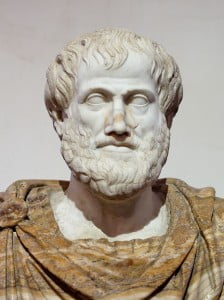By Eric Bright
Religions are false alright,
but why can’t believers see it?
My point was rather that you seem settled on the fact that God doesn’t exist. Fine. We can debate that for years and probably not get anywhere (but who knows?). What I find surprising though is that, given that there are so many intelligent and thinking people who do believe in God, why you would trust your conclusion that they are all insane (famous or otherwise) uncritically. You might be right (I am not the guardian of truth) but we aren’t insane because we hold wrong beliefs. I read your posts with interest and I don’t find them convincing at all. This is not because I am insane!
I was just surprised that, whilst I understand completely that your philosophy is different, you would be willing to resort to labels of insanity for a substantial group of reasonable and intelligent people that agree with you. I know that you tried to do this in the form of reasoned argument but, in my opinion, amongst your good arguments, you show much of the zeal, confirmation bias
and misrepresentation that you seem to perceive and hate in the arguments of ‘mystical’ minds. It can be very frustrating as I know that you have a lot of very good things to say and I, for one, would find you very challenging if I wasn’t so put off by all the noise.
That’s what a friend of mine wrote to me. And it’s true. We are all set in some of our ideas. Some of us, are ready to change them if they are refuted, some of us are not. That’s a big difference. The difference is not in if we have set beliefs, nor is it in if we have false beliefs. I mentioned that before.
That includes me, you and everyone else on this planet who has ever existed and will ever exist. We will (1) have false beliefs and (2) we will have some beliefs that we trust more than others.
So, I don’t know what one’s objection to the above-mentioned, obvious observations are or would be. If you object to those, then I would like to know what they are.
Next is the issue of if we are willing to challenge them and if we have the mental tools and dispositions to change those set beliefs in case they turn out to be false and we end up knowing it.
I told my friend and now tell you that here we have two big problems. You might be able to object to these:
1- How do we know if a belief is false?
I say there are tools for it. You might disagree.
2- If we discover that some of our beliefs are false, what should we do with them.
I say we should abandon them. You might disagree with me on this too.
He said, “you [Eric] seem settled on the fact that God doesn’t exist.”
That’s true. There are reasons for why I think that is the case and I am willing to change my position if I turn out to be wrong. I will, however, be not quite sane if (1) I know that what I think is false and (2) insist on its “truth” anyway.
He said, “I know that you tried to do this in the form of reasoned argument but, in my opinion, amongst your good arguments, you show much of the zeal, confirmation bias, and misrepresentation that you seem to perceive and hate in the arguments of ‘mystical’ minds.”
In here, either I am right or I am wrong. There is no middle ground and you and he would need to try hard to convince me that I can be both right and wrong in the same sense and at the same time, or neither right nor wrong for that matter.
The issue with this is that there would be no way for me to be right, and at the same time for me to sound not like a zeal to my opponents. My opponents do not look like zeal to me by the way. They either do not know what they are talking about and still talk about ‘it’, in which case they are ignorant. Or, they know that they are wrong and still insist on what they wish to be true, in which case they are insane (or a politician). Or they are right in what they are saying but they are awfully incapable of even beginning to communicate their “knowledge,” in which case they are not competent.
Writing thousand pages to explain something and still being in the first square is not ‘explaining’ in any sense. So, if you want to refer me to Augustine and other like-minded fellows, that’s fines. But, their “arguments,” if we can ever call them so, have been dissected countless times and their flaws have been discovered, documented, and taught in schools for ages. There is nothing that my opponents have said that has not been decisively invalidated so far.
Did I say that because my opponents were and are wrong, then I am right? Certainly not. My position is not one that I need a proof for. Mine is a default position of a newly born baby. The burden of proof is on the one who claims to know that there exists something that’s called Invisible Pink Unicorn.
Whatever I say about my opponents would fall under those categories that I mentioned above, and how do you think I would be received then? With open arms? Of course not. Even if someone comes to me and says that ‘Hey Eric, you know what, you are either an idiot, a lunatic, or both’, then I would be upset and would ask for further explanations. I might even resist admitting the validity of his categories in the first place. But, what if, and I say it again, what if the things that I believe, or a thing that I believe, is false and I learn about it? At first, I am only ignorant. Or I was, before the new discovery. Then, it becomes something beyond that. Depending on how I would deal with the new information, I might even be justly labelled as insane.
So, I don’t say everyone-is-insane-but-me. There are many cases that people just happened not to know the falsehood of their beliefs. That’s still fine. But, the problem begins when they start protecting themselves from learning about the truth of the
The friend I was discussing these issues with got back to me with the following lines:
Firstly, some general comments:
1. I am frustrated, even (and often especially) within Christianity at how many people accept things without thinking. I won’t quote the Bible too often but Paul says in it that if the resurrection is not true then Christians are to be pitied above all.
2. My education was originally in science. I do understand the scientific method and its history. I do value it exceptionally
highly as the best procedure that we have to form a relationship between our minds and the material world.3. However, even if my reasoning turns out to be wrong, my current position is that I believe Christianity to be true. There is no one knockdown reason why I think this but I find it the consistent, with historical evidence, most explanatory of my fundamental questions about myself and the universe and most existentially satisfying. I am aware that each of these points can be debated and my mere stating them doesn’t prove anything. I am also aware that I have problems
in my current conclusions. However, I am being perfectly honest when I say that I have bigger problems with the philosophy of materialism.All I ask for is the courtesy that when people engage with my views, they take these comments at face value, even if they can’t fathom how I might get to these conclusions. Then we can discuss. We probably won’t change our minds but at least we might be able to understand a little more why someone might hold positions that we would otherwise consider ridiculous. And you never know, we might actually challenge ourselves if not, initially, at the most fundamental level but
scratching at the surface of our “web of knowledge” as Quine would call it.[1- How do we know if a belief is false?
I say there are tools for it. You might disagree. I don’t know.
2- If we discover that some of our beliefs are false, what should we do with them.
I say we should abandon them. You might disagree with me on this too.]
1 – I think that this is a really difficult core question of epistemology and isn’t trivial to answer. If we take the standard (ignoring Gettier for the moment) definition of knowledge to be justified, true belief, then we get into headache land immediately. Your question becomes “What justified, true belief do we have to judge
a second belief for falsehood?’. I am sure that you can appreciate the danger of infinite regression here.I do agree that there are tools which we can use to ask questions about truth and falsehood. However, I also feel that an unquestioning acceptance of these tools as final judge on the matter is making a commitment to a philosophical position that may or may not be true itself but cannot be judged by those tools without circularity.
2. Although I agree in principle, I don’t think that anybody actually behaves this way. The reason is
that , as stated, it makes it seem like that discovering beliefs are false is a black and white issue. It tends to be a more gradual process in most cases.
I was very happy after reading his comments to learn a few things about him. According to what he said, I came to the following conclusions. I would do my best to make them as relevant to our discussions as possible, given my limitations and biases. I told him that,
(1) He is not a Christian. Well, he said he was, but he was not. And there is nothing there to be ashamed of here.
When he said,
“I am frustrated, even (and often especially) within Christianity at how many people accept things without thinking. I won’t quote the Bible too often but Paul says in it that if the resurrection is not true then Christians are to be pitied above all.”
This is true and he also knows it. There are doubts in his mind already. He does not, and I dare say he cannot, accept “things without thinking” as other Christians do. This is a very important difference.
I don’t even understand why he got the impression that my post on Religious Mind had anything to do with a person with dispositions such as his. He said it himself. There are some problems in Christianity, he knows it, and they do frustrate him as they do frustrate me. That’s enough to invalidate the label of insanity or delusion. He knows that some of the beliefs of those who call themselves Christians are problematic. They are not obviously true to him at least. That’s enough for me. To me, he is not delusional; not pathologically so.
A delusional person would never say what my friend said. Not only they do not accept that there
More superficially speaking (to change the atmosphere a bit), I asked him when was the last time that he burned
The answer to all of the above is: Never. He has never done any of those things (or else he must have been living in a jail and communicating with me from his cell for all that time; which was not the case).
He didn’t do any of them. Not only that, but he would, so far as I can read between the lines, condemn any and all of the above-mentioned practices (I hope he would anyway).
Not only that, he already knows what verses are to be discarded, which verses are to be quoted, which verses are to be ignored, which verses are to be interpreted literally, which verses are to be interpreted poetically/allegorically/metaphorically/etc., which verses are to be quoted out of their contexts, which verses are to be quoted only inside a large context, and so on.
He knows all that. He has been doing it all his life (most probably). He seems to have a higher authority in doing so than anyone else, even Elohim himself. He interprets the Bible the way he wants, quotes it the way he feels like to, explains it the way he thinks it must be explained.
All of this, shows one thing and only one thing: That he is not a Christian.
But, he is not off the hook yet. Not yet. He still believes that there is some thing in there that is valid. This takes us to the next issue.
(2) He, or anyone else who sees themself opposing my stance, tends to reject the validity and dominance of logic, and in the same breath accept the validity and dominance of his own faith. This is UNBELIEVABLE! I cannot fathom how these guys do such a thing.
It’s easy for him or any other believer to say:
‘Meh… Logic?… Argh!… You can never know if that’s working. You can never be sure of its validity/usefulness/etc. It can be wrong altogether.’
Then he would say,
‘But Christianity? Of course! I know that it’s the truth. All the evidence showed me that there was a guy named x, the son of a deity named y, did such and such, said so and so, went there and there, ate this and that, died, then got resurrected, and so and so.’
You might want to reread the past few paragraphs. It is truly, astonishingly mind-boggling that believers can see themselves accepting such a story of such an alleged person, but cannot see themselves accepting the omnipresence and the dominion of logic.
Even putting these two subject on one plate and comparing them together is stupendously weird and incredible. So, it is easier for a believer to believe that Jesus existed based on some anecdotes, but it’s not conceivable for them to understand that there is no escape from logic (the same logic that will play a critical role later in all and everything that all and everyone have ever said or will ever say).
You need logic to even be wrong. To make sense or not to makes sense, you need logic. To be silly or not to be silly you need logic. To mean anything or not to mean anything you need logic. To be far from the truth or to have it in your pocket you need logic. You know if a guy named Jesus existed and to have faith in him, or to reject it all you are playing by the rules of logic.
Well, don’t be too happy now though (now I am speaking to the believers). That does not mean that you are playing it well. The believer does play by the rules of logic no matter what. But, they make contradictions after contradictions. Then they try to prove that their faith is based on truth, then when they are reminded that by the same rules that they are playing the game, they are being inconsistent and incoherent, they would say,
‘Screw logic! Who cares about logic! I have already proved it wrong.’
(3) Another thing that almost all religious people are very proud of is to point out that no matter what, knowledge is not possible. It’s weird to see that their own alleged knowledge of the virgin birth and the son of the Lord and the resurrection and so on are excluded from that assertion.
‘It is impossible for everyone to have any knowledge of anything for sure’, they would say. Why would they say so? Because then they don’t want you to be able to say that, ‘I know that there is no Invisible Pink Unicorn’. As soon as you say you know it, they would throw all the epistemology at you.
But, when it comes to them to assert the articles of their own faith, miraculously enough, all the previous epistemological problems with “verified true beliefs” and the rest of the challenges in epistemology suddenly evaporate and they are allowed into their heavens unhindered by any of those difficulties. All of a sudden, it is absolutely fine if the source of one’s alleged evidence is some anecdotes of anecdotes of anecdotes, sixty years removed from the alleged event it hoped to describe by peasants who mostly could not even read and write when the world, coincidentally, was around year 60 CE. That is perfectly fine with them. No matter what those anecdotes are telling and no matter how incredible they are.
If you argue that if 1 means so and so and 2 means so and so and + means so and so and = means so and so, then 1 + 1 = 2, they would say,
‘Meh… how do you know that? It’s not possible to form verified true beliefs, you know. Your senses can be tricking you into believing that 1 + 1 = 2’.
But, if you object that, ‘You know what, the “evidence” you are talking about from around the year 60 CE, might be questionable’. Then they would flip. This is not what they can conceive of for the most part. If you say, ‘You know what, the idea of resurrection, that is completely and purely based on ancient anecdotes to the point that you can safely discard it as unsubstantiated and
Some leaps of faith, eh? I thought so.
(4) One thing that almost all believers, indiscriminately so, overlook is the difference between verification and falsification.
Look at the quoted comments above, the ones that my friend made, and the ones that others make in any ‘religion discussion’ community or forum. More than half of them are there to show us how weak, pathetic, silly, unacceptable, unreliable, untrustworthy and fragile verification of any fact is. One’s comments, for instance, are all around the issue of sentients not being able to form reliable knowledge as they venture away from their bodies’ shores. Another’s comments are emphasizing the fact that there is no reliable way to know anything and how problematic the notion of verifiable true belief is: circular, pathetic, etc.
Everyone is beating on that drum. The funny part of all those maneuvers to show that we cannot even trust our own senses let alone anything else is that I also have said exactly the same thing over and over. But for some reason, it seems to others that if they say it, it’s a proof against my general stance, but if I say it, well, who cares.

Then, what is missing here?
A lot! The whole point of the whole discussion is lost, completely, in those funny maneuvers: It has never been about verification. It’s all about falsification.
But, it does not really matter
I am not the discoverer of that fact. I am not the only one who noticed it. I am not the only one who talked about it. It’s been around for ages. But, for some reason, it does not sink well into most people’s minds.
But why? What is wrong with that? How hard is it to imagine the differences between verifiable true beliefs and falsifications of any uttered statement? Okay, they are different, so what? What do you want me to do with that? “Let’s move on to the next topic, shall we?” I hear some are already whispering.
But, please! Please don’t move on. Please don’t overlook this thing. This is the thing, the missing link, between the way believers think and the way non-believers “figured it all out.” It is simple. Everyone can understand it if enough attention is devoted to small details.
There are not hundreds upon hundreds of formulae one needs to memorize in order to be able to even take her first step. It needs practice, attention, and a focused mind alright. But most of us can manage to gather them for quite some time.
It is not enough to be the most genius mathematician on earth to figure it out. It’s not a random thing someone can come across no matter what. It has little to do with extreme intelligence and has almost nothing to do with how much a person might know. Understanding it does not depend on which university one studied at or is teaching at. Being a professor emeritus at Oxford does not, magically, bring such a comprehension about, nor does being a professor at Harvard, or Princeton. The number of trophies one has won in a lifetime does not do any better, nor does winning a Nobel Prize. It is a particular set of puzzle pieces, like a combination lock, that has to be understood, set next to one another, and be worked out before it can unlock any door. And the puzzle, unfortunately, cannot be solved randomly, by accident or by lucky charms.
This is what one needs to understand to unlock the door. It might take days, months, or years before its implications set in. That really depends on the person and circumstances. Here it is. 👇🏼
The law of noncontradiction
In (A ∧ ¬A), you don’t have to know if A is true or if ¬A is true in order to know if
(A ∧ ¬A) is true or false. (A ∧ ¬A) is false for some other reasons.
To know that (A ∧ ¬A) is false, you don’t need to know anything, nor do you need to assume anything.
To understand why the above paragraph is all there is in everything we are talking about so far, one might need to take a few courses in philosophy, logic (like natural deductive logic, axiomatic logic, and so on), and put many different, seemingly irrelevant or unimportant pieces together before the incredible importance of it becomes obvious.

Is it obvious that the law of noncontradiction is true? No. Not at all. Is it obvious, or even convincing that its implications are absolutely lethal to any supernatural metaphysics? Hell no! Of course not. Are you kidding me?! It’s not at all transparent what can happen to anything immediately after comprehending the law of noncontradiction. It’s not immediately clear how on earth this little creature, this tiny black hole, can suck in, crush, and evaporate all the mighty deities of all times.
But again, someone would jump in and say,
‘Meh… how do you know that what you think you know about the law of noncontradiction is actually true? … Who cares about it anyway!’
And this is when things get frustrating. “Playing chess with a pigeon” is the best way to describe the frustration that follows.



